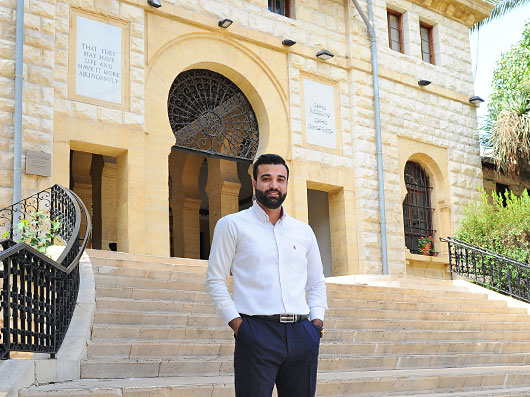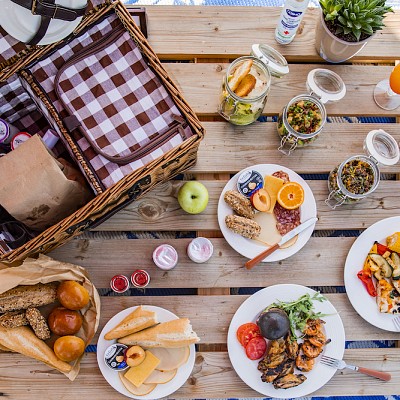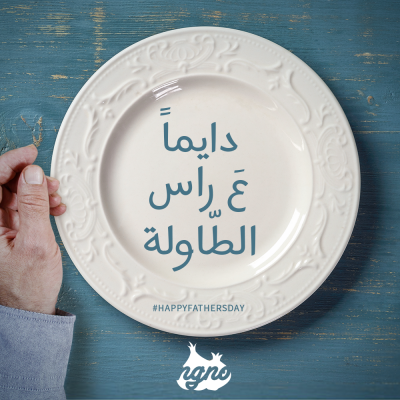Stars of Science: Whoever said you can’t have your cake and eat it too clearly hasn’t met Fouad. The Lebanese scientist, engineer, and entrepreneur coasts through life collecting as many engineering degrees as possible: two bachelor’s degrees here and a couple of master’s degrees there.
Fouad spent his childhood in the mountainous region of Alman, Chouf near Lebanon’s capital of Beirut. More than anything, he wants to be a role model for young adults in his country and in the whole Arab world.
In doing so, Fouad continues to pursue education with more gusto than Romeo’s pursuit of Juliet. But what is theory without practice? Fouad’s thoughts exactly. Intrigued by the principles of nanotechnology, he started exploring ways to integrate it into everyday items to multiply their functionality.
“Working with electrospinning nanotechnology requires expertise across several fields. My degrees allowed me to assess the technology from different perspectives,” he added.
Living by the mantra ‘stay hungry, stay foolish,’ Fouad looks to his family as his inspiration – especially his dad who never stops encouraging him to stay devoted to his ideals.
About the Project: Fouad’s Nano-shielding Textile Machine harnesses nanotechnology to apply petrochemicals and pharmaceuticals to ordinary textiles, such as shirts and socks. It can make clothing waterproof, or integrate healing medicine within the fibers of bandages. If he succeeds, Fouad is confident the possibilities for the innovation will be endless.
In order to validate his project, Fouad focused on two applications. The first makes ordinary apparel instantly waterproof. The second integrated specific medicinal chemical compounds within fibers. The medicinal compounds can be wide ranging, and can be used for a variety of treatments such as wound healing, treating diabetic ulcers, and relieving muscle strain.
“For hundreds of years, advancements in clothing technology have not kept pace with other fields,” said Fouad. “By using nanotechnology for clothing, we can take a giant leap forward. This can go far beyond your suit staying dry in an unforeseen rainstorm. I see future applications of this technology in the medical, sports, and even military sectors.”
Impact:

AUB alumnus Fouad Maksoud creating revolutionary nano-medicine technology
AUB: Once again graduates from the American University of Beirut prove to have the ability to effect groundbreaking change, this time in the field of nanotechnology and bioengineering advancement. Fouad Maksoud, who graduated from the Maroun Semaan Faculty of Engineering and Architecture (SFEA) in 2016 with a Master’s degree from the department of Chemical and Petroleum Engineering along with parallel graduate studies in Mechanical Engineering, has created an inspiring electro-spinning machine, introducing a technology that might change the way medicine is done.
At 25, Fouad Maksoud is a skilled engineer and an innovative entrepreneur, with expertise in the field of nano-medicine. Maksoud patented a new technology using electro-spinning nanotechnology that creates lab-scale nanofibrous mesh as waterproof medication impregnated with drug delivery systems for wound healing, third degree burns, diabetic ulcers, and muscle strains. Maksoud is now working to take his technology beyond the walls of the lab to create a usable product.
“AUB has helped me shape my research, and guided me through with my studies. What started as an idea, developed into a full thesis , and I owe that to the opportunity provided to me by AUB, my persistence, and those of my lab partners, my advisor Prof. Tehrani as a leader in this technology and pioneer in the MENA region, as well as the esteemed professors Ghaddar and Aboughali and Dean Shihadeh who believed in me” said Maksoud.
At the time of his graduation, Maksoud received a certificate of outstanding research and achievement from the Department of Chemical and Petroleum engineering at SFEA. He has also made a valuable gift to the department: the electro-spinning machine that he invented during his studies. This machine is a first step towards an industrialized nanotechnology and the backbone of Maksoud’s pilot scale machine that he plans to develop.
Fouad aspires to finish his postgraduate studies, and is inclined towards the field of entrepreneurship.
“I mainly care about looking into pain relievers, and finding solutions for painless healing processes. The way we do burn healing currently leaves indelible scars that affect the life of the patient. Imagine a patient suffering from third degree burns; although the healing is attainable, visible scars will persist for the rest of their lives. I aim at introducing technology that both influence the healing process and leave no mark behind,” said Maksoud.
Looking at his portfolio, many international companies are expressing interest in investing in the Research and Development Department of his innovative start up.
“Eventually, we do R&D to create material that would ease people’s lives, and this is where I want to take the research I have spent years investing in at AUB,” added Maksoud.
Maksoud also thanked President Fadlo Khuri for his constant support, and shared with us his heartfelt message to AUB students. Being an AUBite himself, he believes that AUB provides its students with limitless opportunities to realize their dreams and visions, and this is what every student should make use of.
“To my fellow AUB students, I understand the stressful times you are going through, and all the overnights you are spending perhaps at Jafet Library. Studying and working at AUB is no easy task, but diamonds are made under pressure, and AUB prepares us for the world. I wouldn’t be where I am now had it not been to this historic institution,” said Maksoud.









































